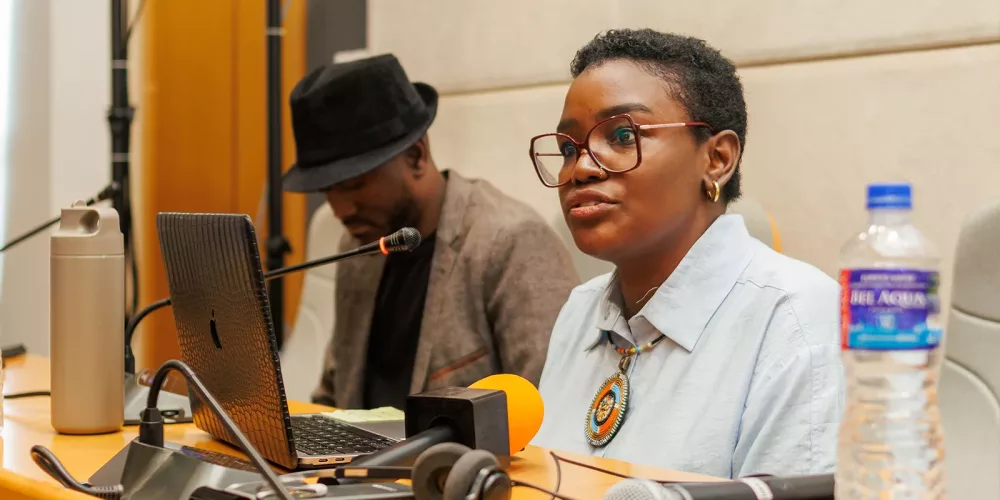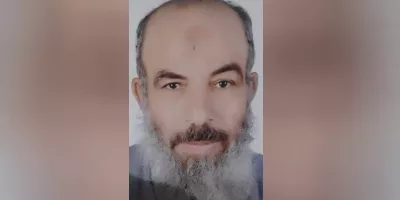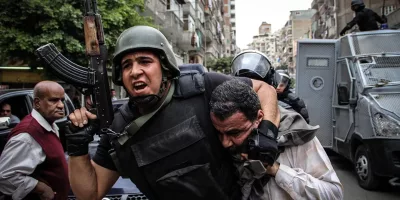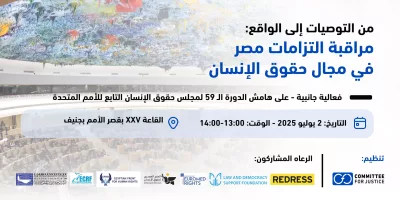The Committee for Justice (CFJ) has organized a side event within the framework of its “Country Review” project, focusing on the human rights situation in Sudan. The event took place on Saturday, May 3rd, at 1 PM, at the Sir Dawda Kairaba Baba Jallow International Conference Center in Banjul, The Gambia. It covered the period from the end of the previous session of the African Commission on Human and Peoples’ Rights to the current session, shedding light on the most important events, violations, and changes that have affected the human rights scene in the country, whether through intensification of crises or emergence of signs of progress.
– Widespread Targeting of Civilians:
In her opening speech, Mai Aman, Legal Officer at ISLA, has stated that the main trend in the conflict in Sudan is the widespread civilian casualties due to displacement, with more than eight million people having been displaced internally and across borders. She also highlighted another alarming trend: ethnically targeted attacks and the spread of gender-based and sexual violence, especially in areas controlled by the Rapid Support Forces.
Aman explained that in the context of a complete collapse of governance institutions and basic services, victims often cannot access justice or medical care.
– Shocking Rise in Extrajudicial Killings:
Musaab Sahabi, member of the Executive Office of Emergency Lawyers Group, has spoken about extrajudicial killings, massacres, forced displacement, and arbitrary arrests of lawyers and human rights defenders in Sudan. He said: “Since the outbreak of war, there has been a shocking increase in extrajudicial killings without trial or legal process. Bodies have been found in the streets, and some showed signs of torture. Even aid workers and human rights defenders have been killed in some cases after being beaten, tortured, or during random searches, and no investigations have been conducted.”
Sahabi added: “Human rights defenders in Sudan today are targeted, and they must be provided with legal protection, just like civilians who face direct bombing of their homes, attacks on their families, and rape of women and girls.”
– Documentation of Attacks on Civilians in Darfur:
Mohamed Abakar, researcher at “Awafi” Human Rights Organization, has stated: “We have documented attacks on health care centers and incidents of torture against civilians. Recently, we issued a report on attacks and violations committed against civilians in Darfur.”
– Use of Universal Jurisdiction:
Eva Nudd, an American human rights lawyer, has discussed the importance of the International Court of Justice case (Sudan vs. United Arab Emirates) and the use of universal jurisdiction and documentation. She said: “I would like to speak about localized justice and the role of African and regional mechanisms in providing victims with opportunities to seek justice. Documentation is important because it makes it impossible for perpetrators of these grave violations to deny the crimes or escape accountability, and it helps prevent future violations. Through documentation, pressure is placed on governments to conduct prompt, impartial, and thorough investigations, and to provide reparations to victims of torture and other abuses.”
She added: “We know that Sudan is seen as an environment of impunity, but there are countries that have addressed this issue successfully by relying on political will and regional and international pressure. This is what Sudan is currently doing, as it has filed a lawsuit requesting provisional measures against the UAE, accusing it of complicity in genocide against the Sudanese population by supporting the Rapid Support Forces.”
Nudd pointed out that through the principle of universal jurisdiction, Western countries have pursued perpetrators of war crimes committed in other countries, as happened in The Gambia and what South Africa did regarding the conflict in Gaza. The lessons learned from these efforts show that such actions can disrupt the lives of officials, restrict their travel for fear of arrest, and make them social outcasts. Therefore, she concluded, political will and accountability go hand in hand to prevent impunity.






